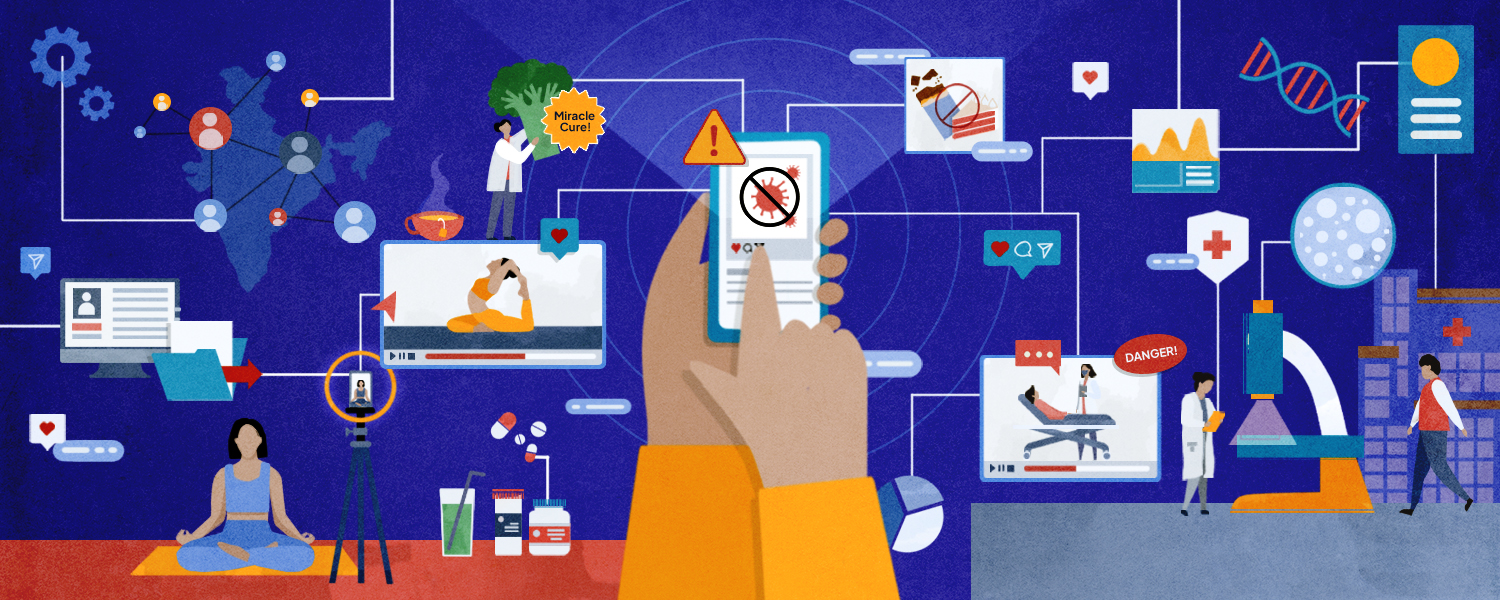
Since Covid-19, there has been a significant surge in online health-related information. Unfortunately, much of this information has been neither accurate nor verifiable, often falling under the umbrella of “fake news” or “misinformation.”
Our report seeks to move beyond labels to explore the nuances of the health content ecosystem, focusing on reach, monetary incentives, and the sourcing of information, while emphasising the importance of information integrity.
If you go through our report, you will find:
- A comprehensive understanding of information integrity, including a working definition that captures all aspects of digital information.
- An analysis of a pre-selected pool of 12 health content creators from four diverse backgrounds: laypersons, alternative medicine practitioners, nutritionists, and medical professionals.
- A detailed examination of seven posts from each of these creators, addressing several questions to understand information integrity.
- An exploration of best practices identified from creators who promoted the idea of information integrity.
Some key findings from our deep dive into these health-related posts.
- Doctors are the least popular creators, averaging only 1.2 million views per post, whereas Alternative Medicine Practitioners (e.g., Ayurveda) receive the highest engagement, with over 2.5 million average views per post.
- Citing scientific papers significantly reduces engagement, with average views dropping from nearly 2 million to just 0.7 million when posts reference academic research.
- Instagram is the primary platform for unsourced content, with 92% of posts lacking citations originating from Instagram.
- Layperson creators are the most active in product endorsements, with such posts making up over 50% of their content, whereas doctors are the least likely to endorse products, with only 10% of their posts containing endorsements.
Here are some of the key suggestions we have to make information more accurate, verifiable and reliable.
- For viewers – when you come across any posts online that contain health claims, Pause evaluates factual accuracy, by checking sources mentioned and Take Care by reporting false claims, and seek professional advice when in doubt.
- For creators – Disclose your professional background, monetary incentives involved, and sources used in your posts. Provide adequate Disclaimers for users and Desist from relying solely on anecdotes.
To find out about our work in more detail please read our paper!


